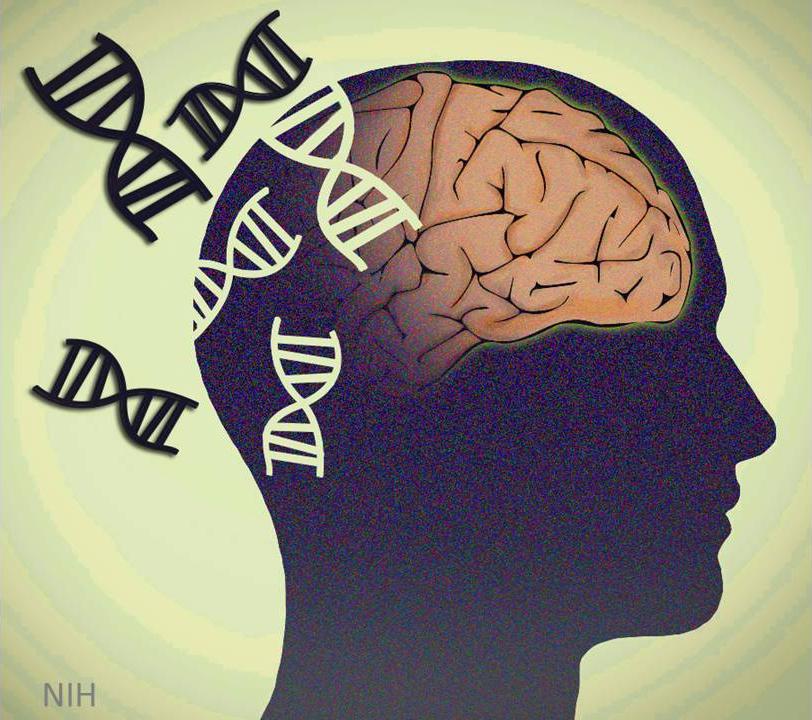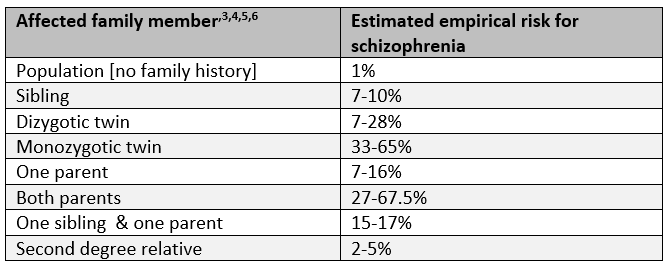Most people with schizophrenia have sleep problems at some stage. To conclude many patients with schizophrenia suffer from comorbid sleep-wake disorders.
/what-are-the-symptoms-of-schizophrenia-2953120-cba74c5e1dd942ecafde1824217603f9.png) The Signs And Symptoms Of Schizophrenia
The Signs And Symptoms Of Schizophrenia
There is new research that shows that 80 of people living with schizophrenia experience sleep and circadian rhythm disturbances.

Schizophrenia and sleep. In medicine this is called circadian rhythm disorder and it occurs when circadian sleep-wake drive from the SCN of the hypothalamus is out of synchrony with the environment. This is known as the circadian rhythm which is more of a clock that regulates the sleep cycle in the body and once this clocks battery burns out the brain loses the ability. Circadian rhythms are responsible for a persons sleep-wake cycle.
Sleep and schizophrenia are intimately linked. It has been identified as a putative causal factor in the onset and persistence of psychotic experiences paranoia and hallucinations. Measured by polysomnography reduced sleep efficiency and total sleep time as well as increased sleep latency are found in most patients with schizophrenia.
There are many clinical problems relating to sleep that present in individuals with schizophrenia but the most difficult to treat from the point of view of psychiatrists carers and project workers in mental health is the tendency for these patients to sleep when the rest of the world is awake. Patients with schizophrenia often have a combination of subjective sleep complaints and objective findings on polysomnographic. The male to female ratio is roughly equal.
If you are already at risk of psychosis sleep problems can increase this risk. For people with schizophrenia sleep problems may. Up to 80 of people with schizophrenia report symptoms of insomnia Cohrs 2008.
Disturbed sleep can be found in 3080 of schizophrenic patients depending on the degree of psychotic symptomatology. Sleep disturbance is a common clinical issue for patients with psychosis. Schizophrenia and Sleep James D.
Waking hours are cued by daylight and sleep hours are cued by the release of the chemical melatonin. Lichstein SCHIZOPHRENIA Epidemiology The lifetime prevalence of schizophrenia is estimated to be between 05 and 1 with an incidence rate of approximately 1 per 10000 per year 1. Sleep disturbance is a major problem for people with schizophrenia.
Our own work has shown that over half of patients with persecutory delusions report moderate or severe insomnia Freeman Pugh Vorontsova and Southgate. Why do you need to get help for sleep problems in schizophrenia. - be linked to the start of psychosis or with relapses.
Schizophrenia also can be associated with comorbid sleep disorders which may be enhanced or induced by antipsychotic medication. Difficulties initiating or maintaining sleep are frequently encountered in patients with schizophrenia. Women are more likely to have a later.
The study which incorporated home sleep studies on 32 patients with schizophrenia is the first of its kind worldwide to confirm a link between schizophrenia and obstructive sleep apnoea. Recognizing Signs of Sleep Disorders and their Effects on the Patient Insomnia. Insomnia may present as.
Sleep disturbances in patients with schizophrenia. Sleep problems may be the first sign of onset or relapse of illness. Older people tend to need less than young people.
Although there are many issues relating to sleep in schizophrenia the most difficult to treat is the tendency of people with schizophrenia to be awake when others are asleep. Since sleep regulation involves many neurotransmitter systems and brain circuits it is likely that the mechanisms generating normal sleep overlap with those that maintain mental health. Mood concentration memory and.
2 In addition both self-report and objective. - affect other parts of your mental health eg. Difficulties initiating or maintaining sleep are frequently encountered in patients with schizophrenia.
Impact and effect of antipsychotics. Hence sleep disruption may be a potential treatment target to prevent the onset of psychosis and reduce persistent psychotic experiences. I know the only time I get unwell is when I am sleep deprived so this is an important marker in keeping me well.
Sleep problems make it harder to get better. Disturbed sleep can be found in 30-80 of schizophrenic patients depending on the degree of psychotic symptomatology. How are sleep problems diagnosed.
Most adults need seven to eight hours sleep per night. Here is what one person living with schizophrenia Catrina said about the importance of sleep. This would explain why disturbed sleep and schizophrenia are so intimately linked.
Sleep impairment most frequently insomnia is the most commonly reported symptom in individuals who are in the prodromal phase of schizophrenia. Therefore in daily clinical practice sleep needs more attention in the treatment of patients with schizophrenia so that such patients receive optimal treatment and their qualities of life are increased. Sleep disorders in schizophrenia should be treated vigorously because normalized sleep and its restorative processes may be essential for a positive clinical outcome.
Difficulty initiating sleep difficulty maintaining sleep and early morning. Obstructive sleep apnea OSA is also common in people with schizophrenia with a meta-analysis. Sleep problems cause other health issues.
Sleep pattern in schizophrenia but the most clinically relevant and distressing problem is going to sleep while everyone else is awake. Sleep problems are common to the illness but are often overlooked.


